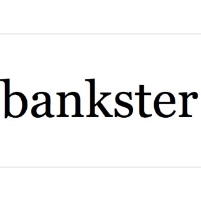Debit Card Fees: Free Money for Banks
Friday, March 25, 2011

Banks are crying over changes in debit card fees set to take effect this summer, claiming the new federal restriction will be too much to bear and force them to offer fewer deals to consumers.
At issue are what’s known as interchange fees—the cost that banks charge merchants each time a consumer uses their debit card to buy something, whether it’s gasoline, food or entertainment. Banks made $48 billion last year on these fees, which are set to go down from 44 cents per transaction to 12 cents by this July, thanks to the Wall Street reform legislation adopted by Congress.
Americans currently pay higher interchange fees than anywhere else in the world, with U.S. fees twice that of those levied in Europe.
As writer Richard Eskow explains, “Credit card fees may be too high, but they've always been defended on the grounds that the card issuer is also running the risk of bad debt. But debit card fees come straight from your bank account, so the banks aren't risking anything. It’s money for nothing.”
This hasn’t stopped the banking industry from lobbying Congress to delay implementation of the interchange fee cap. If lawmakers don’t do so, some banks like JPMorgan Chase plan to stop offering debit card rewards to most customers.
-Noel Brinkerhoff
Debit Card Sharps: The Fight over Wall Street's 'Invisible Tax' (by Richard [RJ] Eskow, Campaign for America’s Future)
Chase to End Debit Card Rewards (by Ann Carrns, New York Times)
- Top Stories
- Unusual News
- Where is the Money Going?
- Controversies
- U.S. and the World
- Appointments and Resignations
- Latest News
- Musk and Trump Fire Members of Congress
- Trump Calls for Violent Street Demonstrations Against Himself
- Trump Changes Name of Republican Party
- The 2024 Election By the Numbers
- Bashar al-Assad—The Fall of a Rabid AntiSemite






Comments